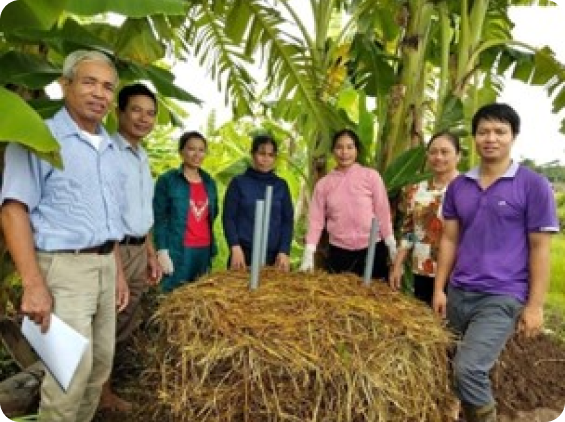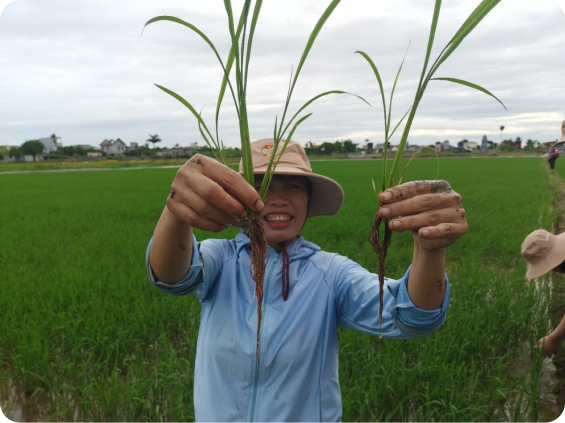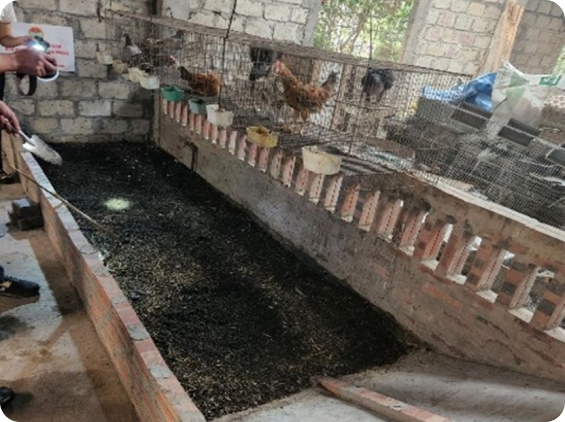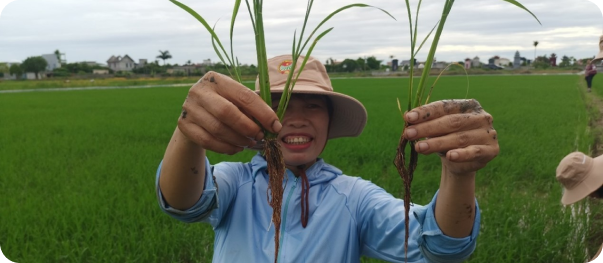Background
Among the biggest sources of black carbon and methane emissions is the practice of burning agricultural and food waste. With proper management, this organic matter could be transformed into valuable resources like compost or insect protein.
Based in Vietnam, this project in partnership with the Vietnam Farmers’ Union (VNFU) aims to support sustainable waste management practices. Targeting waste from farms and the food chain, technical training was provided to rural communities. Workshops educated participants on how to use black soldier fly larvae and red worms to convert manure and food residues into insect protein for animals. Through fermentation, food waste could also be converted into animal feed. Composting using the deep litter method, which involves a large amount of bedding combined with chicken droppings, helped to accelerate the breakdown of organic matter into soil amendments.




